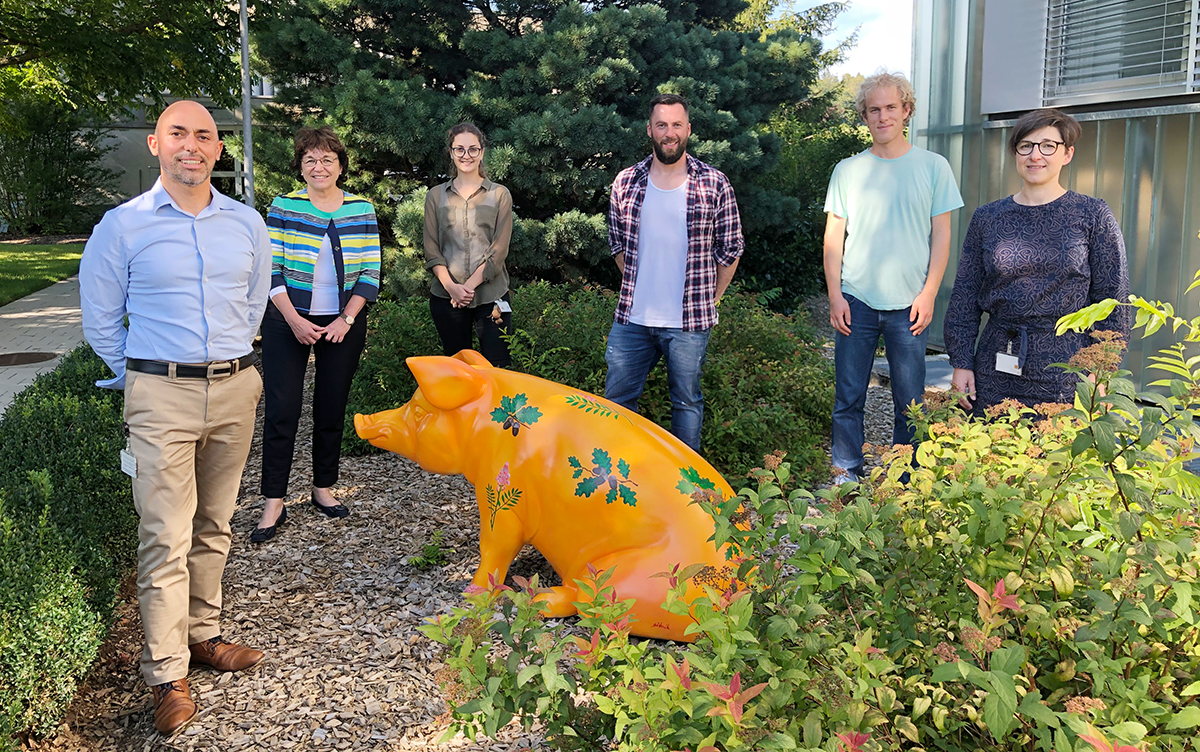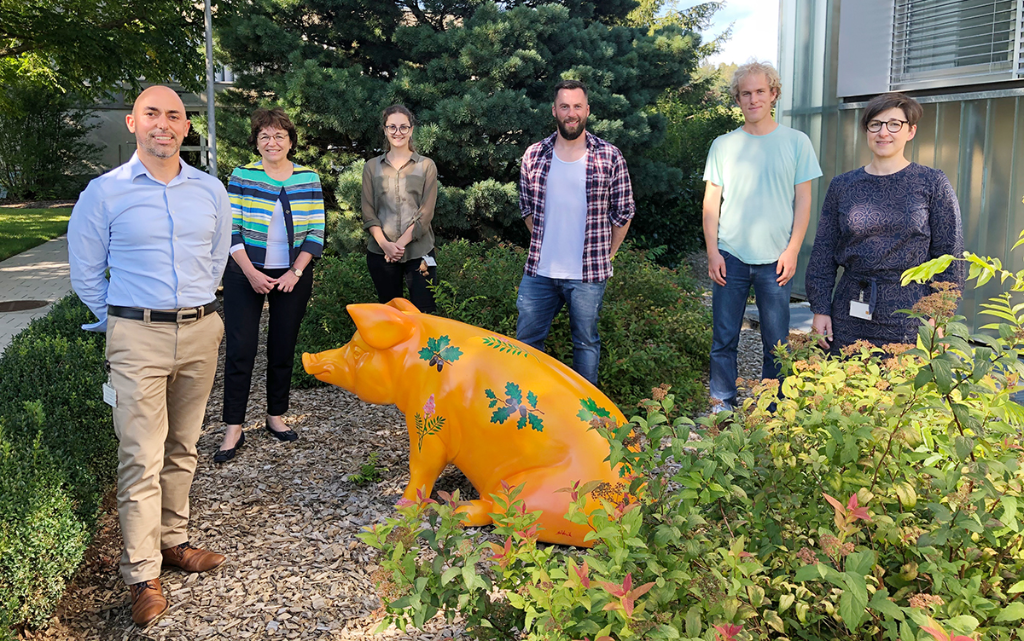From field to fork: Only with healthy animals raised in an optimized system can high-quality, safe food be produced. A multidisciplinary approach along the food chain is therefore important. With the new ‘Animal GenoPhenomics’ Research Group, Agroscope is strengthening livestock research and interdisciplinary networking, tapping into new findings and opportunities for synergy, especially in the fields of animal breeding and animal health.
In Agroscope’s ‘Animal Production Systems and Animal Health’ Strategic Research Division, researchers look in particular for answers to the question of how animal health and productivity can be promoted through effective prophylactic measures in animal breeding, so that sustainable, high-quality and safe animal products can be obtained.
Efficient, robust and healthy livestock
The new ‘Animal GenoPhenomics’ Research Group integrates the strategic research division "Animal Production Systems and Animal Health". The aim of the Group is to analyse the genetic bases (Geno) of specific phenotype traits (Pheno) that are relevant for the selection of efficient, resilient and robust livestock. In the case of pigs, for example, the Group studies which genes are associated with protein absorption and what the hereditary traits are. The more efficiently a pig can utilise protein, the less concentrates it needs. This has a positive effect on animal production and sustainability of the entire system, since less feed needs to be imported. The researchers aim to identify the genes associated with the efficient use of protein. The same process is also being used with bees and horses to identify the genes associated with different behavioural and health traits. This knowledge can be used directly in breeding strategy.
The new Group is composed of researchers from different Agroscope divisions and groups. Their experience e.g. in the fields of bee, pig or horse genetics will be merged so that internal resources and synergies can be used. The aim is to extend this knowledge to further livestock, such as cattle.
Intensification of collaboration at national and international level
The consolidation of this know-how is at the same time part of the endeavour to strengthen cooperation with other stakeholders from the agriculture and food sector. The Group aims, for example, to create genetic and phenotypic databases that will enhance national and international exchange.
In order to develop cross-system solutions, cooperation with other institutions will be intensified. Hans Wyss, Director of the Federal Food Safety and Veterinary Office FSVO, who participated in the new Group’s presentation, sees major potential in closer cooperation with Agroscope and the interdisciplinary approach: “Due to its small size, Switzerland is reliant on cooperative ventures – this is its strength. The combination of animal health, animal welfare and food safety harbours many new opportunities for strengthening the agriculture and food sector along the entire food chain.”







